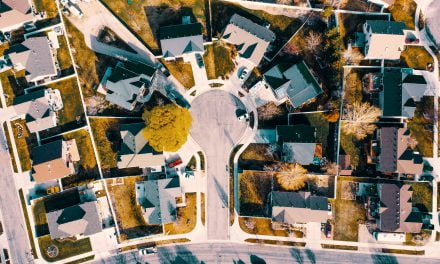Property taxes: everyone pays them, even renters, who typically cover their landlords’ operating expenses. But how much depends on where you live, and when you bought. Compared to their predecessors, those who purchased homes in the past year are paying a lot of property taxes — and covering a significant chunk of the costs to cover their communities’ public services.
California home prices have increased by leaps and bounds in recent months, now 22%-24% higher than a year earlier as of July 2021. Axiomatically, these higher home values produce higher property taxes.
Nationally, property taxes increased twice as fast in 2020 compared to 2019, rising 5.4%. This jump in property tax dollars paid is despite the effective tax rate dropping nationally in 2020.
Here in California, the highest property tax amounts in 2020 were found in:
- San Francisco, which saw average property taxes increase 11.1%;
- San Jose, which saw average property taxes increase 10.8%; and
- San Diego, which saw average property taxes increase 10.2%, according to an ATTOM Data Solutions analysis.
While average property taxes increased rapidly in these areas of California, they are still well below the average home value increases experienced over the same period. The reason? California’s Proposition (Prop) 13, which shields current homeowners from most property tax increases.
Prop 13, the people’s anti-hero
Prop 13, also known as the People’s Initiative to Limit Property Taxation, was voted into California’s Constitution in 1978. It caps the amount property taxes may increase each year to 1% of the property’s assessed value, which equals the property’s base value plus an inflation factor. This base value is the property’s value at the time of purchase.
For a state with the fastest-growing home values in the nation, this property tax cap is crucial for homeowners — especially seniors and other owners with fixed incomes — unable to keep up with these rapid price increases. However, there are some major problems with Prop 13, including:
- lost tax revenue, leading to less money available for public services like police, schools, emergency services, roads, parks, and more;
- discouraged sellers and fewer home sales, as buying replacement property brings with it significantly higher taxes and thus higher homeownership costs compared to the home being sold; and
- loopholes allowing corporations and big investors to avoid their share of taxes and benefit from a law meant to protect individual homeowners.
Related article:
New homebuyers (typically young families with less wealth) pay a larger share of the revenue collected by local governments to pay for public services — why Prop 13 is called the “welcome stranger” law.
Further, a study by the Tax Foundation finds that across the board, governments are forced to compensate for low property taxes (as with Prop 13) by instilling:
- higher income tax rates;
- higher sales taxes; and
- more business taxes.
Yet, Prop 13 remains a wildly popular tax measure among homeowners and real estate professionals. In fact, firsttuesday regularly conducts reader polls on the issue and the vast majority of readers support Prop 13 as-is. Just last year, voters turned down the opportunity to revise Prop 13 to close the commercial loophole.
To be clear, firsttuesday is not suggesting we do away with Prop 13 altogether. After all, a 20%+ annual increase in property taxes will quickly become devastating to most established homeowners’ budgets. But to protect our communities’ public services and infrastructure — and to encourage turnover and home sales volume — Prop 13 needs some major amendments.
But wild enthusiasm for Prop 13 means any proposed changes to close loopholes are unlikely to pass. Thus, California is stuck with Prop 13 — the good and the bad — until grassroot opinions about the pitfalls of Prop 13 change.















Hi Carrie, Paul Larisey, Owner and Tutor of Real Estate Excellence, Inc in Pebble Beach, CA. We have a website REEinc.ORG for exam prep., and Just wanted to let you know I’ve been enjoying your regular Newsletter that suddenly showed up in my emails. Your topics, reporting, and editorial is simply excellent and wanted you to know some people out there are appreciative of your sincere and contemplative good intentions and efforts. Some time back I think I took some continuing ed with your company and found the material intelligently done (compared to much of the education that’s out there in RE), so when newbies call us and ask where they should take their 3 courses to get their license, we usually recommend First Tuesday (even though you offer exam prep as a competitor as well.) Keep up the good work. Strange how things you never would have thought you’d be interested in when you were in college (like Real Estate laws) can actually become an expertise you “kinda like.” All the best,